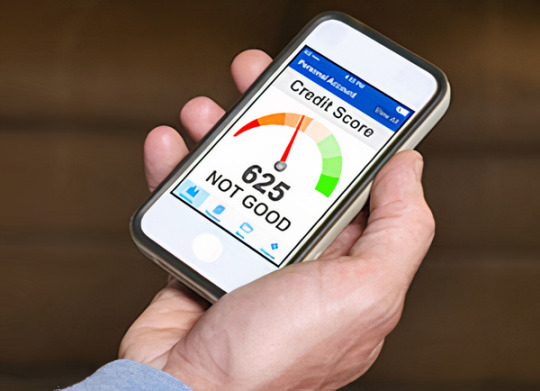#tax credit payments
Text
my usaa savings account exists essentially to pay off my student loan payment. which gets larger and larger. and that’s not even the one that’s about to start payments this fall. yippee
#and my credit card payment#unless i get a lump sum from somewhere#i.e. my tax return#my poor accounts just dwindle and dwindle with a biweekly chump change deposit from my shitty job#God i hate it here so much i wish i could be peacefully put down
10 notes
·
View notes
Text
Still, awaiting your GST or Tax refund? Get it earlier than your family and friends like over 1 million other Canadians. The Secret?
https://web.koho.ca/referral/RV2TV073
Get your FREE ACCOUNT HERE. Canadian Accounts with cash back, high-interest rates and free over-draft protection to name a few benefits. #directdeposit #GST #incometax #familybonus #childtaxcredit #workingbenefit Refunds #credit #deposit #banking #finaince #overdraft #freeaccounts #badcreditok #mastercarddebitcard #rewards #incometaxrefund #CRAdirectdeposit #GSTcredit #GSTcreditpayment #childtaxpayment #earlydeposit #mastercarddebitcard
#youtube#canada#vancouver#business#abbotsford#news#music#ontario#GST#GST Credit#GSt payment#banking#direct deposit#early payment#family#child tax#child tax benefit#carbon tax credit#tax refund#tax refund deposit#GST Credit deposit#cash back#high interest#mastercard#interac#free#accounts#overdraft#free overdraft#credit rebuilding
4 notes
·
View notes
Text
i gotta say, a cool $5k in my bank account would be really cool right about now
#combo of my good gas mileage car getting held ransom and my brother suddenly moving out and raising my rent 50% has me. augh#mostly making the post bc the barely-more-than-interest payments on my credit card feel Fucking Bad and if i could just. not have that. wow#like i can still get takeout on occasion and eat gluten free bagels and chicken breasts. i will be fine. but also. augh.#also though dont even get me started on the gluten removal tax. it triggers my fibro shit really badly so if i want to work..#i will pay $6 for a box of crackers and $9 for a loaf of bread. and thats most of the easy lunches to take to work right there.#and the adhd makes it hard to plan other lunches in advance... you can see the issues#i cant even have. like. backup lunches or anything. no cup noodle in my classroom or anything like that. cos they have BREAD#and FLOUR.#actually though now that i think about it i could leave some cans of soup in my classroom. thatd be a good idea. anyway.#contribute to the random-tumblr-asshole's curry takeout and can of soup fund today#squawk
4 notes
·
View notes
Text
I cant wait til i get my first piece of anon hate for being a homeowner. Its probably going to happen before i become a homeowner
#like yeah im getting this due to intergenerational wealth but its not like mommy and daddy bought this for me#im losing my father and my grandfather happened to own a construction company so he made all his children houses...#houses they had to be paid for#theres a hefty scoop of privelege that comes with this-#i dont have to pass credit checks or make a down payment#but im still gunna be 200k in the hole on a home that needs serious work#not counting the tax debt lean on the house#and its hard to see losing my father at 24 with no carreer and no plan- suddenly having to pay bills and a mortgage as a privelege#also im not gaining any cash from this which is gunna suck#cause im gunna have to pay for a funeral out of pocket#and this is all assuming we CAN save the house#theres a nonzero chance i lose everything
8 notes
·
View notes
Text
i'm going to talk to myself morosely in the tags for a bit to see if i can unknot the brain parts, disregard.
#i am. so tired of money dude.#i have insane student debt but i don't have insane OTHER debt and it's still so overwhelming#when i say not insane i mean like <5k#it's still way more than i should because that two fucking months without health insurance really fucked me up#but i can get on top of it with how much im paying for rent and meds and utilities and car payments and car insurance#and having to eat#like im in a much much better place mental health wise than i was but i think maybe ive made a mistake#the ability to cancel my student loans is huge. it's huge and i'm essentially guaranteed that from multiple directions in about three years#but the interim? i knew it was gonna be tight and it's gonna be less tight at some point but the last three months have just been barely#hitting each paycheck not in the hole and having to make car payments late and having to rely on credit for unavoidable overdrafts and#idk what to do lmao#and if the smoke thing w the apartment stays this bad it's gonna continue to negatively impact my health and i literally cant afford to mov#even to somewhere cheaper#i cant afford the initial payments to do that even though it'll be better in the long run#im so stressed and it's negatively impacting my relationships and i cant put my brain into working through my stupid fucking issues because#all in doing is surviving#and it makes me so sad because there's already enough in the world without my adding to it#im just tired dude and it's gonna be another week and a half of just. clenching my jaw and not sleeping#idk what to do dude moving back here WASN'T a mistake but im sure hovering on the line of really really feeling like it was#.... good motivation to do my fucking taxes i guess. like. TOMORROW.#not sure that helped but at least it's not just a weird mass in my chest anymore#and my hand is still fucked up and im never gonna be able to pay to fix it at this rate lmao#at least one of them sort of works.
2 notes
·
View notes
Text
Tax Prep Checklist 2024: What Do You Need to File Taxes?
— Aly A. Yale | Reviewed By Robert Thorpe | February 06, 2024 | Newsweek
Tax season is quickly approaching, and whether you file your returns yourself or enlist a professional for help, having the proper documents on hand will be necessary. These documents ensure a quick and accurate filing, which can lead to a faster tax refund for some. Want to make sure your tax filing goes off without a hitch? Use this tax prep checklist to guide the way.
Vault’s Viewpoint
There are five categories of documents you’ll need as you file your tax returns: personal information, income, deductions, credits and payments.
You’ll need information for you, your spouse (if filing your returns together) and your dependents.
Banks, lenders and your employer send many documents to you automatically, but there are some you may need to pull yourself.
Personal Information
The first set of documents you’ll need detail personal information for you, your spouse (if married and filing your returns together) and your children or other dependents.
Social Security Cards For You, Your Spouse and Your Dependents
The Internal Revenue Service (IRS) needs a way to identify you as a unique taxpayer, and for most people, this requires a Social Security number (SSN). You’ll also need your spouse’s SSN if filing your returns jointly, the SSNs for any dependents you have and the SSN of the paying party if you receive alimony or child support payments.
If you file your returns as a business owner, are a nonresident or resident alien or a paid tax preparer, you’ll likely use a unique tax identification number instead. You can apply for these directly through the IRS.
Bank Account Numbers
You’ll need to put in your bank account’s routing and account numbers when filing your return. This will allow the IRS to directly deposit your refund once it’s been processed. You can find these numbers in several places, such as on your bank statements, online after logging into your account at your bank or at the bottom of a check linked to your account (The first number listed is your bank’s routing number; the second is your account number.)
A Copy of Your Last Tax Return
This isn’t required, but it can be helpful to have past returns on hand as you file your new one. It can be a quick way to look up information, and it may also remind you of what deductions and credits you’re eligible for. You may also be able to use the return to auto-populate your tax return information if you’re using online tax software.
Form 8332 if You Share Custody of a Child
If you share custody of a child and are planning to claim them as a dependent on your taxes, you’ll need Form 8332, as it proves the other custodial parent has released their right to claim the child as a dependent.
Income
You’ll need to show your sources of income on your tax returns. This can include full- or part-time employment, freelance work, unemployment earnings or alimony payments. Many of these documents will be mailed to you or delivered electronically by the government, your employer or clients, or your bank by the end of January. Some documents, though, you may need to produce yourself.
W-2s
A W-2—or Wage and Tax Statement—is a form you’ll get from your employer annually. It details how much income you earned, the taxes they withheld from your paychecks, details about your benefits and more.
Form 1099-NEC or 1099-MISC
If you’re self-employed or earned income from side gigs, contracting work, freelancing or other jobs that don’t come with a W-2, you should get a 1099-NEC or 1099-MISC form that details how much you earned from each client every year. Clients don’t have to report payments under $600 to the IRS, though. So if you only earned a small amount from one, you may have to rely on bank statements to report these earnings accurately.
Form 1099-R or SSA-1099
If you received Social Security benefits or distributions from pensions or retirement accounts, you should get a 1099-R or SSA-1099, also called a benefit statement, detailing how much you earned in any given year. You can also pull your SSA-1099 at SSA.gov.
Proof of Alimony or Child Support Received
If you received alimony or child support payments from a former spouse or other party during the year, you will need to report these payments as income on your tax return. You’ll need the total amount you received, as well as the payer’s SSN or tax ID number.
Profit and Loss Statements
Business owners need a profit and loss statement, which details business expenses and revenue across the year. You can typically get this from your accountant or bookkeeper, or you can create one yourself by gathering details about your operating costs, overhead expenses, earnings and profits.
1099-G
If you received unemployment income in the tax year you’re filing for, you should get a 1099-G form detailing how much you were paid. You also may get a 1099-G if you receive any state or local income tax refunds.
1099-INT, 1099-DIV or 1099-B
Taxpayers who receive interest payments on savings, investment, checking or other types of financial accounts will receive a 1099-INT. This form reports the full amount of interest earned across the year. This is considered taxable income on your returns.
If you earned money from dividends or distributions from any investments, you will also get a 1099-DIV. And if you sold any capital assets, like stocks, bonds or other securities, you’ll receive a 1099-B. This will detail your gains and losses on those assets, which could result in additional tax liabilities.
1099-S
If you sold real estate in the last year, you may receive a 1099-S, which details the closing date and the proceeds of the sale.
1099-Q
Taxpayers who receive money from a 529 education plan or Coverdell education savings account (ESA) will need a 1099-Q. This form shows your total distributions, their base costs and the earnings you received on your initial investment.
1099-SA
If you received distributions from a Health Savings Account, Medicare Medical Savings Account or Archer Medical Savings Account at any point in the year, you’ll get a 1099-SA form. You will need to report these distributions on your return, though they’re only taxable if you fail to use the funds on qualified medical expenses or you exceed the annual HSA contribution limit.
Records of Cryptocurrency Transactions
If you bought or sold cryptocurrency at any point in the year, you’ll need records of these transactions, as you’ll need to report them on your annual returns. They may also result in capital gains taxes.
Proof of Any Other Income
There are many other forms of income you may have received throughout the year, and you’ll need to report all of it. This can include income earned from royalties, prizes, awards and gambling earnings.
Deductions
Deductions allow you to reduce your taxable income and therefore your total tax liability. To take advantage of these, though, you’ll need documentation to prove that you incurred the eligible expense, as well as how much it cost you.
Here are some of the documents you may need to maximize your tax deductions.
Health Insurance Costs
If you’re self-employed and must cover the costs of health insurance without the help of an employer, you can typically deduct the entirety of your premiums each year. If you have a marketplace plan, you’ll receive a Form 1095-A that will detail how much you spent on premiums. If you have a private plan, you’ll need to see your plan documents for the total premium cost.
Business Expenses
If you’re self-employed, own a business or work from home, you may be able to write off certain business and home office expenses. You’ll need receipts for any purchased items and a record of the mileage you’ve driven for your business.
If you have a home office, you should also have copies of any bills for utilities, electricity, rent or mortgage and other costs associated with the overall property. While you can’t deduct all of these, you may be able to write off a portion of them, depending on how much of your overall property your home office takes up.
A quick note for educators: You can also write off the costs of classroom expenses and supplies. You’ll need receipts for these purchases and are limited to up to $300 in deductions.
Form 5498
Contributions to many types of retirement accounts are tax-deductible. Your account administrator should send you a Form 5498 detailing your total contributions, as well as any rollovers from the previous year. Keep in mind there are limits to how much of your contributions you can deduct depending on the type of account.
Charitable Donations
Many charitable donations qualify as a write-off. For example, if you donate clothing or furniture to a local shelter, you can often deduct the total value of those items from your taxable income. Just make sure you donate to a qualifying tax-exempt organization and get an itemized receipt for each donation.
Medical and Dental Expenses
If you incur a significant amount of medical or dental expenses across the year and exceed 7.5 percent of your total adjusted gross income, you may qualify for a write-off. To calculate how much you’ve spent in a year, contact your doctors, dentists and any medical professionals you’ve seen and ask for an account statement. You can also check with your insurance company to see what your out-of-pocket spending was for the year.
Form 1098-E
If you, your spouse or a dependent has a student loan and you paid interest on it, you can deduct that total amount from your taxable income up to $2,500 annually. You should get a 1098-E in the mail from your student loan servicer, which will detail how much interest you paid for the year.
Form 1098
In the event you bought a house or refinanced in the last year, you likely paid mortgage loan interest and qualify for a deduction. Your mortgage lender should send you a Form 1098 that breaks down how much you paid in interest, mortgage insurance and mortgage points.
State and Local Tax Records
Taxpayers can deduct up to $10,000 in state and local taxes (SALT) on their annual returns. These include things like property taxes, sales taxes and state income taxes. Your state tax returns can help here, as can your annual property tax bill.
Credits
Tax credits are similar to deductions, but instead of reducing your taxable income, they’re a dollar-for-dollar reduction on your actual tax bill. See below for the documents you’ll need to take advantage of various tax credits.
Form 1095-A
If you have a marketplace health insurance plan, you may be eligible for a tax credit depending on your income level. You can choose to use this toward your monthly premiums or your total annual tax bill. Either way, you’ll get a 1095-A Health Insurance Marketplace Statement at the end of each year. This will detail your policy data, covered individuals and total premiums, which you can then use to file your returns.
Childcare Provider Details
If you pay for childcare for dependents, you could qualify for a tax credit of up to $3,000. You’ll need to provide your childcare provider’s name, address and SSN or tax identification number. If you don’t have this information, you can request it using a Form W-10.
Adoption Costs
Adopting a child often comes with a tax credit, equal to the amount of the total qualified adoption expenses up to a certain limit. This can include legal fees, adoption agency fees, court costs and other expenses. So you’ll want receipts for any of these services on hand as you file your returns.
Form 1098-T
If you, your spouse or your child is enrolled in a higher education program, you may be eligible for the American Opportunity Credit based on your tuition. You’ll get a 1098-T detailing the total tuition you paid each year and can write off the first $2,500 of it.
Payments
Some taxpayers make payments to the IRS at non-tax season times. If this happens, you’ll need this payment data on hand as you file your returns, as it could impact what you owe and what refund you’re due.
Previous Refunds
You have the option of having your tax refund sent directly to you or having it applied to a future tax bill. If you opted for the second, you’ll want the amount of that applied refund with you as you file your returns. This will reduce the total amount of taxes you owe for the year.
Proof of Estimated Tax Payments
Self-employed professionals, sole proprietors and other types of taxpayers are required to make estimated tax payments quarterly throughout the year. If you’re one of them, you’ll want the payment confirmations from those payments, as well as their total amount. These will help determine if you owe additional taxes or are due a refund.
— Aly J. Yale is a freelance contributor for Newsweek’s personal finance team. She has extensive experience covering real estate, investing, mortgages, and financial news and has been published in Business Insider, Money, Fortune, Buy Side from WSJ, CBS News and US News & World Report, among others. Aly is based in Houston.
#Tax Season#Tax Preparation#Prep Checklist 2024#Aly A. Yale#Robert Thorpe | Reviewer#IRS#Tax Returns#Personal Information | Income | Deductions | Credits and Payments#You | Your Spouse | The Dependents#Documents | Banks | Employers | Lenders
0 notes
Text
Job update: They didn’t answer the door ‘cause no one was there so I called and literally slipped my resume into their mailbox lmfaooo
#‘oh we’re sorting through it online’ o nah you’re getting it the old fashioned way#were boomers right?? lmaooo#this won’t work#lel#i got dressed up for nothing but at least i didn’t have to plead my case#also now my husband’s missing & most likely is gonna get fired so i’m trying to stay positive lmaoo#proud of myself#personal#find this later miracle aligner#also getting a lot back from taxes so i’m splitting it with husband & my mom was like’he has 0 expenses and you have car payment#and lawyer nightmare and credit card & he owed & i got the refund like. why give him half#& it’s like… we’re literally married?? splitting finances is kind of the whole deal aside from lifelong love?????
1 note
·
View note
Text
spending money I don't have on ordering food bc I've been awake for almost 5hrs and only been able to be upright for like. 30m
#personal;#i filed my taxes and am just gonna throw all of that at my credit card to finally get ahead of my payments instead of behind#but I've lost enough weight that it is bothering me significantly and is triggering the eating disorder something fierce#I miss financial security#if I didn't have my damn credit card to pay off my current checks could probably carry me well enough#but no; I have an extra $300/mo charge#well. 600 rn bc I'm perpetually a month behind#and the card's got over 8K on it so like#hhhhhnnnnngggg#spent like two hours looking at apts again sighing bc I can't afford to stay here once the roommate moves :/
1 note
·
View note
Text
How to Prepare for Student Loan Repayment: A Step-by-Step Guide
Student loans can be a major financial burden for many people. But there are things you can do to prepare for them and make them easier to manage. Here are a few tips:
1. Create a budget. This will help you track your income and expenses to see where your money is going and ensure you have enough to cover your student loan payments. There are many different budgeting tools and resources…
View On WordPress
#budget for student loans#financial advisor for student loans.#financial literacy#income-driven repayment plans#make extra student loan payments#My-Financials.com#prepare for student loan repayment#refinance student loans#save for student loans#step-by-step guide to student loan repayment#student loan repayment#student loans#tax deductions and credits for student loans
0 notes
Text
Home Mortgage Questions Answered In This Article
TIP! When faced with financial difficulties, always talk to your mortgage lender. Even though it might seem that all is lost and you can’t afford to make the mortgage payments, lenders are sometimes willing to renegotiate the terms of a loan to help you get through troubled times.
Have you had past home mortgages? No matter if this is your first mortgage or your tenth, knowledge is power. You…

View On WordPress
0 notes
Text
Hey, y'all, this is a reminder for anyone that has student loans that they are defaulted on or in collections for:
Apply for Fresh Start NOW if you haven't already done so. Like right now. Do it right this very second do not put it off any longer.
If you don't know, applying for Fresh Start will move your loan status from "Default" to "Current," you will no longer have to deal with collections calls! You won't have your wages garnished or your tax refunds taken by the Education Department! The default gets removed from your credit and you become eligible for federal mortgage programs! You become eligible for Income Driven Repayment (IDR) programs that can reduce your monthly payment in a huge way (from $400/month to $50/month for me!) and you get IDR credit for the three years you were in default during the pandemic freeze!
It only has upsides!
I mean it, it can make a huge difference! You can even submit both Fresh Start and an IDR application at the same time. It takes literal seconds. I had my name legally changed and I'm still eligible! I clicked like 3 buttons, checked a couple boxes, and boom. I sent off the application August 22nd and I got the letter yesterday (Sept 20th), but that letter was dated Sept 1st and was only to inform me that my loan was no longer in default would be transferred to a new loan servicer by the end of the month. It took a week and a half to process.
I also became eligible and received a refund check for money taken from me during the starting stages of the pandemic.
The best time to do it is now. Period.
Do. It. Right. Now.
5K notes
·
View notes
Text
Information on Child Tax Credit Funds
Child Tax Credit funds are provided by the federal government and are available to tax payers who have children under the age of 17. The amount of funds available is based on the number of qualifying children, the income of the family, and other factors.
How To Get Child Tax Credit Funds>>
The funds can be used to pay for a variety of needs, such as educational costs, medical expenses, child care costs, and more. In most cases, the funds are received as a tax refund and can be used for any purpose. Additionally, there are some states that offer an additional amount of funds in the form of a state-specific Child Tax Credit.
Easy way to get Child Tax Credit Funds>>
If you or your spouse do not have a Social Security number or ITIN number before the due date of your tax return, you are ineligible for the Child Tax Credit. In addition, if you have a qualifying child who does not have a required Social Security number, they are ineligible for the Child Tax Credit.
Thanks
Niloy
#Get Information on Child Tax Credit Funds#Information on Child Tax Credit Funds#Child Tax Credit Funds#child tax credit 2022 — families due payments from $200 to $1#child tax credit 2022 how much is it and when will i get it?#Easy way to get Child Tax Credit Funds
1 note
·
View note
Text
How to Make Money—Starting Airbnb Business
Airbnb is an optimized rental business for the short and long term and provides free listing and coverage for up to 1 million in damage from renters.
Airbnb is an optimized rental business for the short and long term and provides free listing and coverage for up to 1 million in damage from renters.
4 Things to know about Airbnb business
Payment
Payment for a rental will be placed on the Airbnb site, and it supports various payments—Visa, MasterCard, Amex, JCB, debit cards, Apple and Google pay, and Paypal.
Main Point
Rentor wants to stay…

View On WordPress
#Amex#Aorbnb#Apple pay#Branding#coverage#credit card#debit card#expenses#Google pay#income tax#IRS#JCB#marketing#Master card#payment#PayPal#sales tax#small business#tax#tax deduction#Visa
0 notes
Text
Have resigned myself to the fact that saving up for anything is a fool's errand because of the state of the world, and the only two things I'm ever even saving up for is a new car and a place of my own. So. I'm just gonna say fuck it we ball and buy a new car :]
#shut up max#my dad is helping out with the down payment + title/tags + taxes for the first five years#so thatll help out a bunch and then with my great credit score + if I do an 84 month deal#ill only be paying about 350 a month for the car itself#which i know an 84 month deal isnt great or whatever. but i dont care#i plan on actually putting my annual bonuses (which run about $1500) towards it each year so thatll help pay it off sooner#by doing that id have it paid off in five years TOPS#anyways#my savings account is lookin a lil rough ngl but i know its cause of a) the recent many car repairs#and b) i havent been putting as much as usual into savings cause of the Christmas shopping#also i should clarify. its a used car. but its new to me so im calling it new#plus its got great mileage#only been driven about an average of 6575 miles a year#either way. buying this new car should help me in the long run in terms of like. not having to fix something wrong with my car every couple#of months. lmao#a place of my own to live will just have to wait. a while
1 note
·
View note
Text
Credit Repair of San Antonio
Good credit opens many doors. Credit to start a company or rent a new property depends on your credit score. Credit Repair of San Antonio's credit monitoring services help you monitor your credit report. Free annual credit reports are nice, but they're not great for managing money.
Correct credit report errors and monitor changes. Our professional credit counselors have helped thousands of people improve their credit scores. San Antonio Credit Repair's credit monitoring services will help you.
Credit Repair of San Antonio has a team of credit repair and rehabilitation experts who help customers remove negative information from their credit reports. Each member will be assigned a credit specialist to examine their credit scores, credit habits, and identity theft concerns.










#late payment removal#credit restoration#credit repair#collection removal#charge off removal#tax lien removal#debt reduction#identity restoration#student loan services#credit consolidation#inquiry removal#medical billing removal
1 note
·
View note
Note
That Xiran Jay Zhao video about the amount of time it takes to get paid by the publisher, a couple of time she says "that's just the way it is." Are there actual, legitimate business reasons for holding off paying someone 6 or 8 or more months what they've earned for their book? Or is it the publisher basically going "We'll pay you when we pay you. What are you gonna do about it?" because they're essentially the one in charge?
And is it the same for all authors? Or is there an unofficial "tier" system based on your name? Are they telling people like Stephen King or James Patterson or Neil Gaiman "you'll see your money in 8 months" or are they more likely to be getting monthly checks just because of who they are?
There are some legitimate business reasons, yes.
Okay, so let's look at the way a book is sold to a publisher. I'm going to use very round numbers, because I don't want to do a lot of math right now. So say I sell a book for $15,000 under the traditional three installment contract--signing, delivery/acceptance, and publication. What this means is I sign the contract, I get a $5,000 check! Yay! I will also get checks when the book is turned in and accepted, emphasis because it means I can't just give them a word jumble and claim I turned the book in, and then again when the book comes out. We're ignoring side situations like "book is never turned in" and "book is never published."
But wait! My agent gets 15% off the top of each of those checks, which isn't a whole lot at $5,000--$750--but means I'm receiving effectively a $4,250 check, and then waiting maybe a year for the next one.
In the US, 1/3rd of that check goes automatically to taxes, and I cannot math that very well, but it's about $1,416. So I'm left with $2,834 as my payment for the year. This is why most authors will have day jobs.
This structure makes sense. They pay you to call dibs on your book: they pay you when the dibs pan out: they pay you when they can start making money. Now, recently, some publishers have started going to a four stage advance payment, and I can't see any real justification for that. Maybe someone will give me one. I'd be fascinated to know what it is.
So here's the thing: until the book is out, there is no more money. You've been paid for the book, but it's not making money for the publisher yet, and so of course you're not getting more money. It used to be the expectation that your advance would pay your bills while you wrote the next book; that is clearly no longer the case. I live in Seattle. A single check from a three-stage advance isn't paying my mortgage for a month. But.
Once the book is out, it can start making money, and that's when things get complicated. Say a bookstore places an order for 10 copies of AWESOME NEW BESTSELLER. Yay! That should be ten sales, and ten units of whatever your royalty is, right? Only these are physical items, and bookstores can return them, so your publisher marks it down as "ten sales, five reserve against returns," meaning you're only getting credit for five sales until the return window (usually a year) runs out. Where it gets a little hinky is when the bookstore sells all ten and orders ten more, and the publisher still has it marked as "five (now ten) reserve against returns." Basically, you're only getting credit for half your sales until that reserve window closes.
Sadly, thanks to certain retailer policies, this has been grandfathered into applying to electronic sales as well.
TL,DR: The delay in royalty payments is to give bookstores time to sell the books, and mean that your publisher doesn't pay you for a hundred sales, only to ask for the money from fifty to be given back when books are returned. This could happen faster in the modern world, but that would involve publishers paying us faster, and they like to keep the money in their hands as long as possible.
To the best of my knowledge, no one is A Big Enough Author that they can demand their money now, right now. And this is why trad publishing continues to self-select for the wealthy and the young.
3K notes
·
View notes